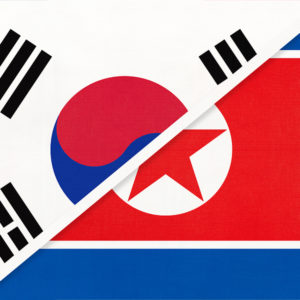The U.S., North Korea, and China were still at war, rhetorically speaking, on the 68th anniversary of the signing of the armistice that formally ended the Korean War. The North Koreans declared the armistice a victory after the Americans and South Koreans and contingents from 16 other countries had fought to a stalemate.
Few Americans are aware the United Nations Command remains at the apex of an alliance in which Americans and South Koreans, under the Combined Forces Command, are committed to the defense of the South. Fewer still know that the Korean War, technically, remains unfinished. That is, the armistice never morphed into a peace treaty.
That’s just as well since treaties are often signed to be dishonored if not broken. The Versailles Peace Treaty ending World War I never made it to its 20th anniversary before Europe was in the throes of World War II. The post-war history of South Korea has been one of miraculous economic recovery and evolution toward democracy while the North has plunged into economic distress made worse by one of the world’s most repressive dictatorships. Under the circumstances, calls for a peace treaty seem irrelevant.
Not so ridiculous, however, would be a simple end-of-war declaration. What would be wrong with North and South Korea, also the U.S., signing a paper saying we’re no longer fighting? Maybe South and North Korean officers can talk about it over that cross-border hotline that reopened on the armistice anniversary, July 27, 14 months after the North had shut it down in a show of anger over propaganda leaflets flown from the South by defectors from the North.
While South Korea stopped the leaflet drops, an end-of-war declaration would not be so simple. For one thing, North Korea does not appear too interested. The North insists the U.S. and South Korea not only end sanctions but also forget about the alliance under which the U.S. still keeps 28,500 troops in the South. The U.N. Command would fade into history, and South Korea’s armed forces would be on their own against a nuclear-armed power that still has more than half its 1.2 million combat troops within 50 kilometers of the demilitarized zone and several thousand artillery pieces within range of Seoul and Incheon.
Then there’s another huge snag. North Korea and the U.S. were not the only signatories to the armistice, which South Korea’s President Rhee Syngman spurned as perpetuating the division of the Korean Peninsula. The other signatory was China, whose “volunteers” “rescued” North Korea from U.S. and South Korean forces. The Chinese might not be averse to an end-of-war declaration, even a peace treaty, but they have problems to clear up first with the Americans.
These were evident when U.S. Deputy Secretary of State Wendy Sherman met her opposite number, China’s Vice Foreign Minister Xie Feng, in Tianjin after dropping by Seoul to make sure she and the South Koreans were on the same wavelength. She said the right things in Seoul about looking for talks with the North Koreans but did not fare so well with the Chinese.
China’s support for North Korea, from the Korean War onward, was hardly an issue at Tianjin. China wanted it known that its problems with the U.S. go far beyond the Korean Peninsula. Outraged by the relatively hard line of President Joe Biden toward China, the Chinese put out a statement accusing the Americans of “demonizing China,” making China an evil enemy as a scapegoat for America’s “own structural problems.”
At least Sherman, Xie, and Foreign Minister Wang Yi were not reported to have shouted and snarled. There was no repetition of the angry exchange when Secretary of State Antony Blinken and National Security Adviser Jake Sullivan met Wang and elder statesman Yang Jiechi, a former ambassador to Washington, in Anchorage in March. Sherman ran through sensitive stuff that could not have made the Chinese happy, including the genocide of the Uyghur population, theft of technology, cybersecurity, threats against Taiwan, and takeover of the South China Sea. North Korea, if it was on the agenda, was almost an after-thought.
Neither the Chinese nor the Americans, however, will be forgetting North Korea. As the U.S. and South Korea decide how seriously to stage joint military exercises next month, China will be watching carefully. There can be no end-of-war declaration while the Americans and Chinese remain dangerously at odds and the North Koreans refuse to give up their nukes and missiles amid a pandemic they stoutly deny has killed anyone.

